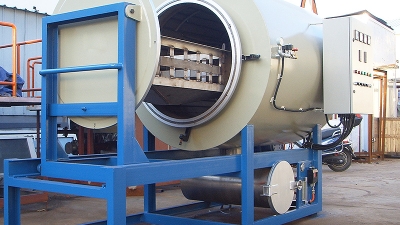How to Choose the Right Oil Filter Element for Your Vehicle's Needs
Table of Contents
- Understanding the Functionality of Oil Filters in Vehicles
- Types of Oil Filter Elements and Their Specific Applications
- Key Factors to Consider When Selecting an Oil Filter Element
- Comparing Synthetic vs. Conventional Oil Filter Elements
- Maintenance Tips for Optimal Performance of Oil Filters
- Common Mistakes to Avoid When Choosing Oil Filter Elements
- Maximizing Filtration Efficiency: Key Findings from Industry Reports on Essential Cleaning Equipment for Filtration Elements
- FAQS
- Conclusion
- Related Posts
When it comes to keeping your vehicle running smoothly and lasting longer, picking the right oil filter element really matters. A good oil filter isn’t just about catching dirt and debris — it’s also about making sure your engine stays efficient and runs like clockwork. Here at FUTAI Machinery Co., Ltd., we’ve been around since 2007, and honestly, we’re pretty proud of our experience in making top-notch filtration products. Our special Filters Department creates a wide variety of metal wire cloth, from stainless steel 304, 316, to 316L, so we can confidently say our oil filters meet the highest standards when it comes to durability and performance. In this post, I’ll walk you through some of the key things to think about when choosing an oil filter element that’s right for your vehicle. So, hopefully, you’ll feel more confident making the best choice for your engine’s health.
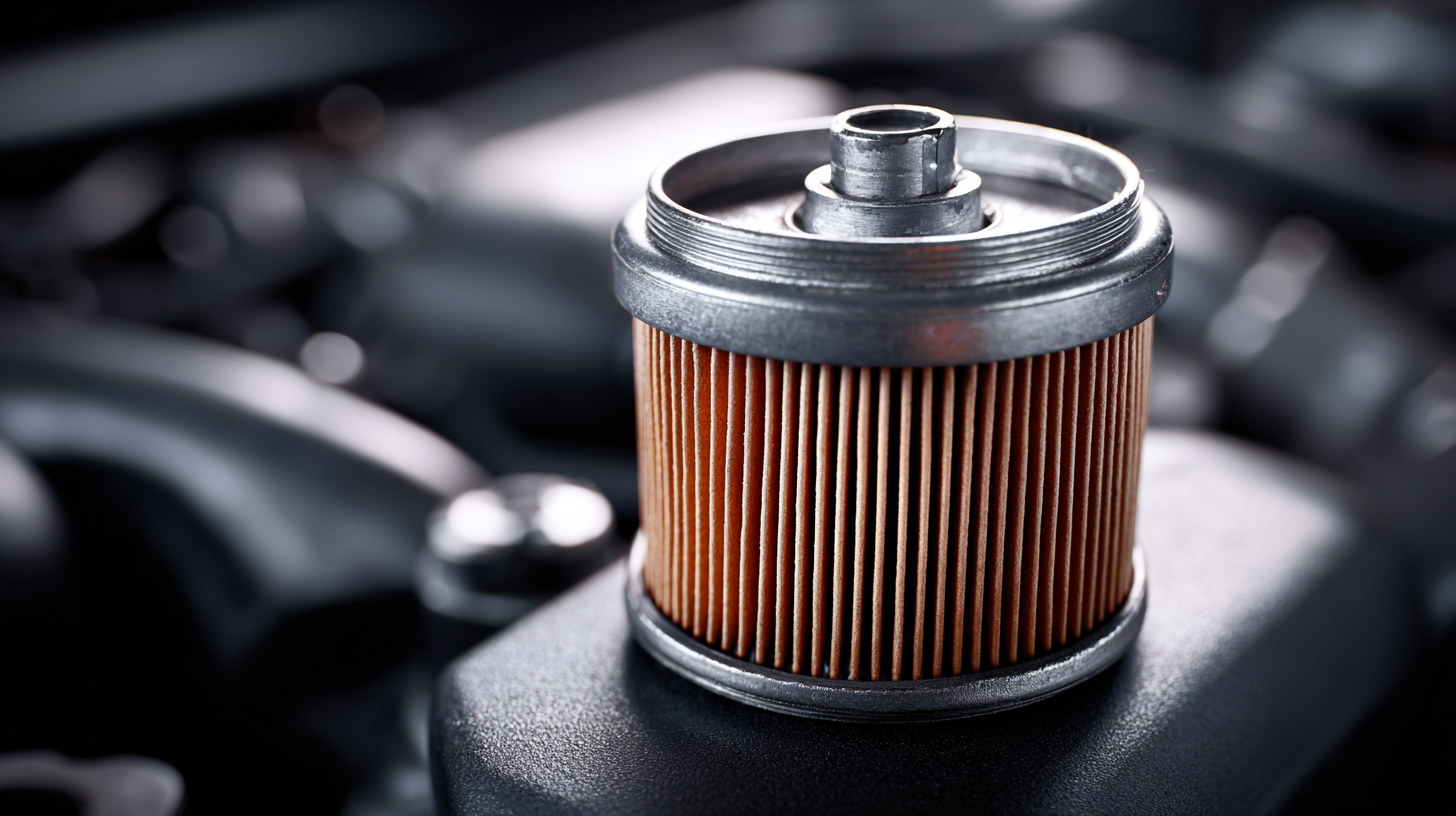
Understanding the Functionality of Oil Filters in Vehicles
Oil filters might not be the most glamorous part of your car, but trust me, they’re pretty important when it comes to keeping your engine running smoothly and lasting longer. Basically, their job is to catch all the nasty stuff like dirt, tiny metal bits, and carbon buildup from your engine oil before it can cause any damage. I read somewhere that about 80% of engine wear happens right at startup because of poor lubrication—that’s why having clean oil is so crucial to avoid unnecessary wear and tear. When your oil is properly filtered, it stays cleaner longer, which helps your engine perform its best and stay protected.
There’s also some interesting info from the National Automotive Dealers Association — they say that changing your oil regularly and investing in a good-quality filter can actually boost your engine’s lifespan by up to 50%. That’s a pretty big deal, especially since the average car owner might spend around a grand each year fixing engine issues. When you’re choosing an oil filter, it’s worth taking a minute to think about how well it can trap tiny particles and whether it’s compatible with your specific vehicle. Some high-efficiency filters use multi-fiber media that can catch particles as tiny as 10 microns, giving your engine an even better shield against dirt and debris. Understanding these little things can help you pick the right filter for your car and keep it running smoothly for longer, without the guesswork.
Types of Oil Filter Elements and Their Specific Applications
When you're picking out an oil filter for your vehicle, it’s pretty important to understand the different types out there and what each one’s good for. There are mainly a few kinds to know about: spin-on filters, cartridge filters, and bypass filters. Spin-on filters are super common these days — they’re easy to install and don’t take up much space. In fact, according to the Automotive Filter Manufacturers Council, around 70% of cars on the road actually use spin-on filters because they do a great job trapping dirt and keeping the oil nice and clean.
Cartridge filters are also pretty popular, especially if you’re into high-performance rides. What’s cool about them is that their replaceable elements give you better filtration and mean less waste. Then there are bypass filters, which add an extra layer of protection by catching those tiny particles that regular filters might miss. They’re especially handy if you’re planning longer intervals between oil changes or if you’re dealing with commercial or industrial engines where keeping the engine in tip-top shape really matters.
**Quick tip:** When you’re choosing an oil filter, think about your engine type and how you drive. Make sure the filter matches what the manufacturer recommends — using the wrong one could actually harm your engine. And don’t forget, checking and changing your oil filter regularly can really help your engine run smoother and last longer.
| Type of Oil Filter Element | Specific Applications | Advantages | Considerations |
|---|---|---|---|
| Mechanical Oil Filter | Most gasoline engines | Effective at trapping particulates | Requires regular replacement |
| Synthetic Oil Filter | High-performance and synthetic oil applications | Longer life and better filtration | More expensive than standard filters |
| Magnetic Oil Filter | Engines prone to metal wear | Captures metal particles | May require additional cleaning |
| Oil Filter with Bypass Valve | Vehicles in extreme conditions | Ensures oil flow during clogging | Potential for lower filtration efficiency |
| Cartridge Oil Filter | Many European vehicles | Compact design and minimal waste | May require special tools for replacement |
Key Factors to Consider When Selecting an Oil Filter Element
When you're choosing the right oil filter element for your vehicle, there are quite a few important things to keep in mind. First off, making sure it’s compatible with your engine is a must. Different engines have their own unique filtration needs, which are influenced by factors like oil type and how you drive. So, always double-check your vehicle’s manual or manufacturer’s guidelines to pick something that’s actually suited for your car.
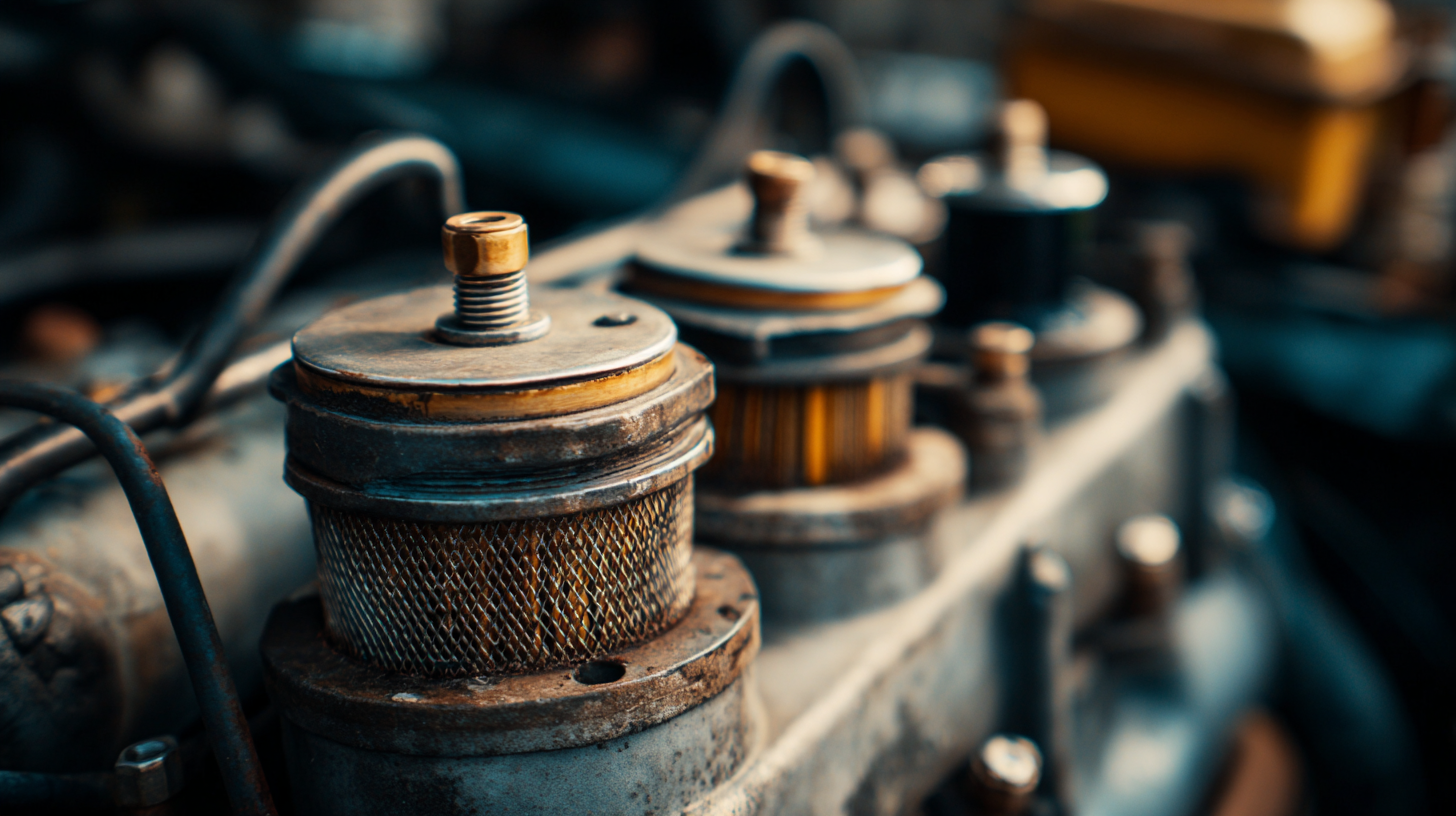
Another thing not to overlook is the quality of the filter media itself. Higher-quality filters—like those made with advanced materials such as stainless steel wire cloth—tend to do a much better job at filtering out contaminants. At FUTAI MACHINERY CO., LTD., we’ve been in the game since 2007, and we know a thing or two about producing top-notch filtration products. Our oil filter elements are designed to handle high flow rates while keeping your engine clean and running smoothly. Honestly, paying attention to these details can really make a difference in how well your vehicle performs and how long it lasts. So, take your time, do your homework, and you’ll end up with a filter that keeps your engine happy for the long haul.
Comparing Synthetic vs. Conventional Oil Filter Elements
When it comes to keeping your vehicle running smoothly, picking the right oil filter element is a pretty big deal. A lot of car owners find themselves debating whether to go with a synthetic or conventional filter—that’s totally normal.
Synthetic filters, which are made with some pretty advanced materials, usually do a better job at filtering out tiny particles and tend to last longer. That means they keep your engine cleaner and help reduce wear and tear over time, which is a plus.
On the flip side, conventional oil filters are more budget-friendly—great if you’re watching your spending or don’t drive all that often. They might not catch every tiny speck as effectively as synthetics, but for most everyday driving stuff, they work just fine and protect your engine adequately.
When you’re deciding between the two, it’s good to think about your driving habits, what kind of vehicle you’ve got, and how much you’re willing to spend. If you’re pushing your car hard—like doing high-stress drives or performance stuff—splurging on a synthetic filter might be worth it.
But if your daily grind is pretty normal, a regular filter should do the trick. In the end, knowing the difference can help you make a choice that actually matches what your car needs and keeps it running its best.
Maintenance Tips for Optimal Performance of Oil Filters
Hey, when you're thinking about keeping your car running smoothly, one thing not to overlook is the oil filter. It’s super important to check and replace it regularly. If it gets clogged or stops working right, oil can’t flow properly, which means your engine doesn’t get the lubrication it needs — and that can lead to serious problems down the line. Honestly, a good rule of thumb is to swap out the oil filter every time you do an oil change, or roughly every 3,000 to 5,000 miles. Of course, it depends on your car and how you drive, but staying on top of it makes a huge difference.
And here’s a little tip: picking the right oil filter can really boost your engine’s performance. Look into factors like the micron rating, what materials it’s made from, and whether it’s compatible with your car’s oil. Going for high-quality filters from reputable brands is often worth it — they tend to do a better job filtration and last longer. Oh, and don’t forget to check your vehicle’s manual for any specific recommendations about filter specs. Stick to these basics, and you’ll not only extend your car’s lifespan but also keep it running more efficiently overall!
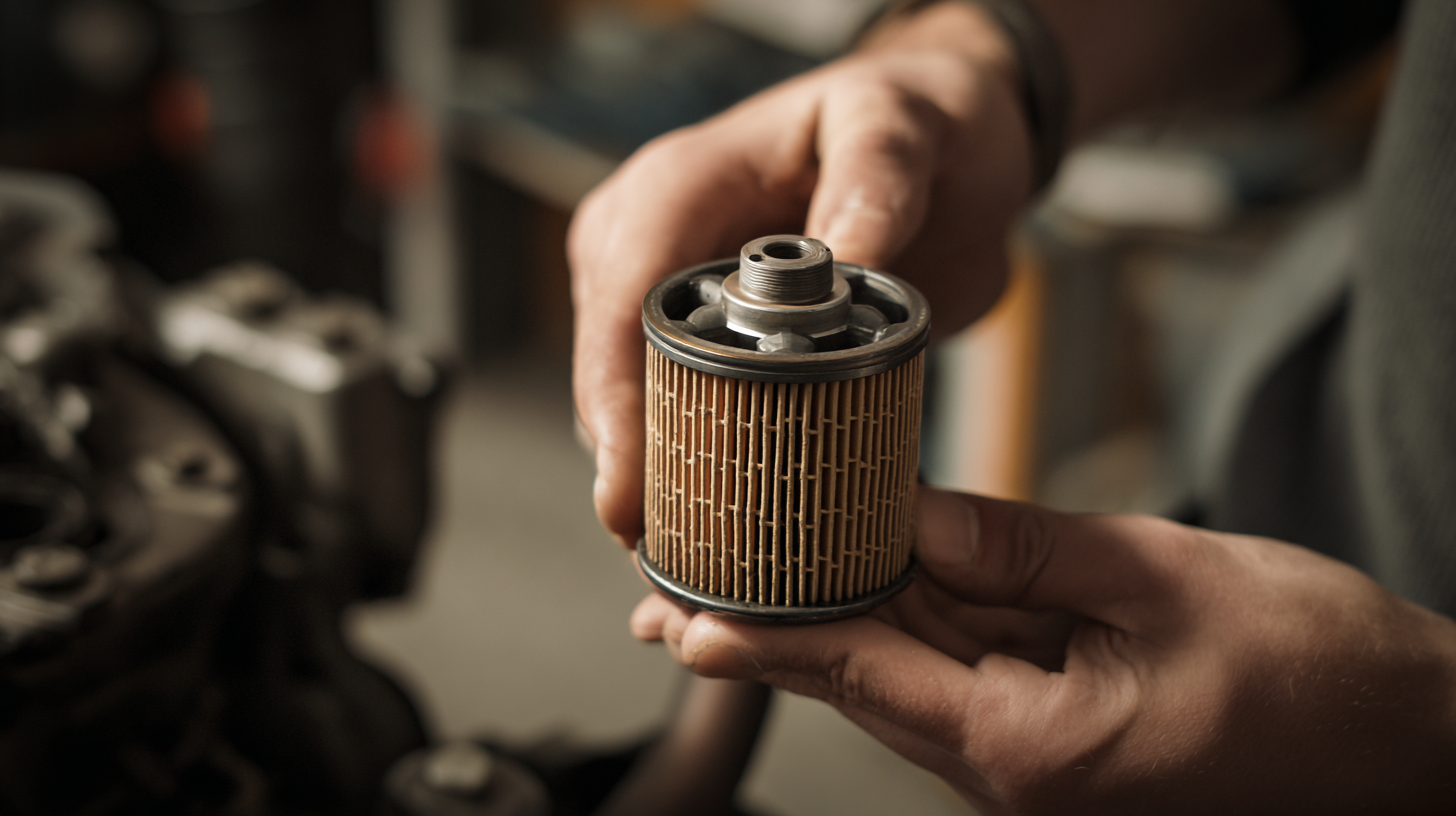
Common Mistakes to Avoid When Choosing Oil Filter Elements
When you're picking out an oil filter for your car, it's really important to steer clear of some common mistakes that can mess with your engine’s health. One mistake I see a lot is going for the cheapest filter out there without paying attention to quality. A lot of folks assume that a lower price means a good deal, but honestly, cheap filters might not do a great job at filtering out the nasty stuff, which means those tiny contaminants can keep circulating in your oil and cause trouble down the line.
Another thing to watch out for is just grabbing any filter without checking if it actually fits your specific vehicle. Every car is different, and using the wrong filter can block oil flow or even cause leaks. It’s definitely worth flipping through your owner’s manual or asking a mechanic you trust to get the right size and type. And don’t forget, regular maintenance matters! Skipping those scheduled oil filter changes can really put your engine at risk. Following the manufacturer’s recommended intervals is the best way to keep things running smoothly.
Basically, taking a little extra time to choose the right filter and sticking to maintenance routines can save you a lot of headaches and money in the long run.
Oil Filter Element Selection Mistakes and Recommendations
Maximizing Filtration Efficiency: Key Findings from Industry Reports on Essential Cleaning Equipment for Filtration Elements
Efficient cleaning of filtration elements, such as candle and disc filters, is paramount for maintaining their optimal performance and extending their lifespan. Regular cleaning not only ensures that these critical components operate at peak efficiency but also helps to prevent costly downtime and replacements. The frequency of cleaning should be tailored to the specific filter type, operational conditions, and the contamination levels encountered in your processes. By conducting routine inspections and monitoring, operators can develop a customized cleaning schedule that maximizes filtration efficiency while minimizing disruptions.
Following recommended cleaning procedures and safety precautions is essential in this maintenance routine. Proper techniques can vary by filter type, so it's vital to adhere to guidelines tailored to your equipment. Engaging with professionals who can provide support and expertise during the cleaning process will also enhance the effectiveness of your maintenance efforts. For those seeking additional insights or assistance, don't hesitate to reach out. Ensuring your filtration elements are cleaned effectively will significantly contribute to their longevity and performance in any operational setting.
FAQS
: You should consider compatibility with your vehicle's engine type, the quality of the filter media, and refer to your vehicle’s manufacturer guidelines for specific requirements.
High-quality filters constructed with advanced materials provide superior filtration capabilities, enhancing oil flow and effectively removing contaminants, which is crucial for engine health.
It is advisable to change the oil filter every time you perform an oil change, or approximately every 3,000 to 5,000 miles, depending on your vehicle’s specifications and driving habits.
Consider the filter's micron rating, the materials used, and ensure compatibility with your vehicle’s oil type when choosing an oil filter element.
Common mistakes include opting for cheaper, lower-quality filters, failing to match the filter with your vehicle's specifications, and neglecting regular maintenance and timely replacements.
Using an incompatible oil filter can impede oil flow, lead to leaks, and ultimately cause engine damage due to inadequate lubrication.
Consult your owner's manual or a trusted mechanic to determine the correct filter type and size that suits your engine's requirements.
Low-quality filters may lack sufficient filtration capabilities, allowing harmful contaminants to circulate in your engine oil, which can lead to engine inefficiency and damage.
Yes, adhering to manufacturer guidelines is crucial to avoid potential issues that can arise from using the wrong filter type or size.
Regular maintenance and timely replacement of oil filters prolong the life of your vehicle and improve its overall efficiency by ensuring optimal oil flow and engine lubrication.
Conclusion
When you're picking out the right oil filter element for your vehicle, it's super helpful to understand what it actually does and the different types out there. Oil filters are kinda the unsung heroes of your engine—they catch all kinds of contaminants from the oil, which helps keep your engine running smoothly and at its best. Not all filters are one-size-fits-all, though. You'll want to consider things like whether the filter is compatible with your car, the kind of oil you're using, and how often you plan to do maintenance.
Oh, and it’s worth comparing synthetic and conventional oil filters too—each has its perks when it comes to durability and how well they filter the oil. Doing regular checks and maintenance can really extend the life of your filter system, and being aware of common pitfalls during selection can actually make a difference in how well your car performs. At FUTAI MACHINERY CO., LTD., we’re all about providing top-notch filtration products, including a variety of metal wire cloth options, so you can be confident your oil filter element is just right for your vehicle and keeps things running smoothly.
Related Posts
-

5 Essential Tips for Choosing the Right Pack Filter for Your Business
-

What is a Candle Filter for Poy Spinning and How Does It Work in Textile Manufacturing?
-

5 Best Reasons to Choose Mesh Pack for Your Business Needs
-

10 Essential Benefits of Pre Filter Candle: Enhance Your Air Quality Management Strategy
-
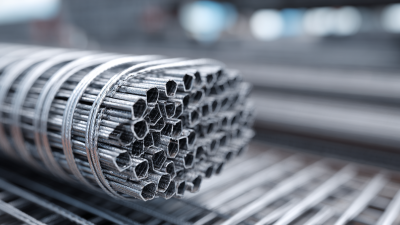
How to Choose the Best Galvanized Welded Wire Mesh for Your Project
-

Top Strategies for Sourcing Efficient Barmag Pack Filters in the Textile Industry
Blog Tags:






